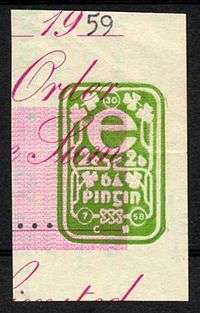Gift tax
In economics, a gift tax is the tax on money or property that one living person gives to another.[1] Items received upon the death of another are considered separately under the inheritance tax. Many gifts are not subject to taxation because of exemptions given in tax laws. The gift tax amount varies by jurisdiction, and international comparison of rates is complex and fluid.
Countries without gift tax
(incomplete list)
Countries which tax the recipient
(incomplete list)
Countries which tax gifts between spouses
(incomplete list)
Countries which do not tax gifts to children
(incomplete list)
See also
References
- ↑ O'Sullivan, Arthur; Sheffrin, Steven M. (2003). Economics: Principles in Action. Upper Saddle River, New Jersey 07458: Pearson Prentice Hall. p. 368. ISBN 0-13-063085-3.
This article is issued from Wikipedia - version of the 12/2/2016. The text is available under the Creative Commons Attribution/Share Alike but additional terms may apply for the media files.
